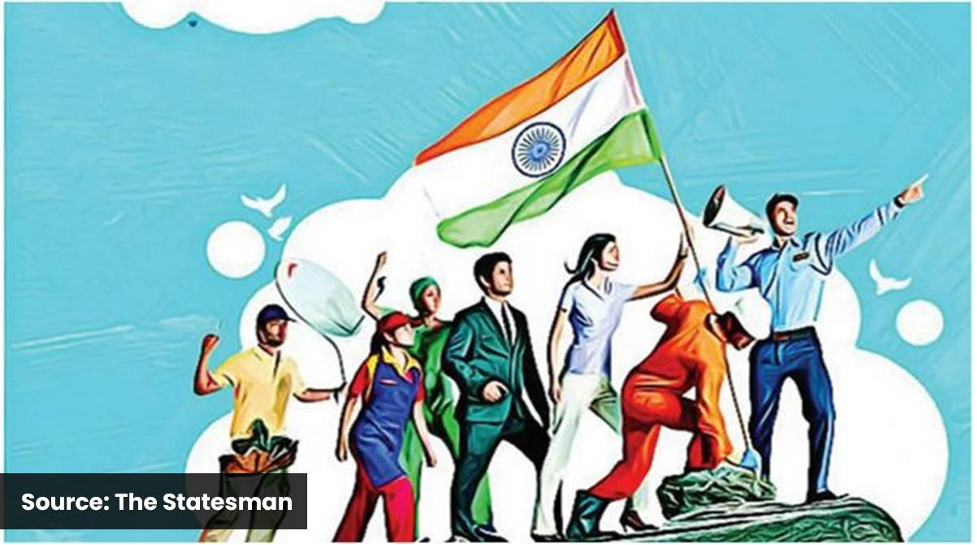
Written by: Bhavya Bhardwaj
India’s young human resource and the humongous possibilities it possesses, has often been quoted as its biggest strength as a nation. Currently, the median age of the population is just 28.4 years, which makes India one of the youngest across all the countries in the world. The youth today are more educated and aware, they have been raised with better amenities, but most importantly, they are not fearful or wary of walking on uncharted paths to accomplish their goals.
Yet, the disillusionment with the domain of electoral politics and the way it functions is strongly felt and sensed amongst the Indian youth. As per the data, 64 MPs under the age of 41 were elected in the 17th Lok Sabha, while there are 221 MPs between the age of 41-55. While the average age of the first elected Lok Sabha was 46.5 years, it rose to 54 years in the 17th Lok Sabha. This situation is a huge anomaly as it makes ‘India a young country ruled by old politicians’.
What are the reasons for this existing state of affairs and what can be done to address this situation? The prominently conceivable reasons that dissuade youth from opting ‘politics’ as a serious career choice include the highly inaccessible and ‘corrupt’ nature of the field where muscle and money-power almost inadvertently decides who will walk on the ‘corridors of power’. The inaccessibility is substantiated by the fact that youth participation in politics remains highly dependent on variables such as wealth and family connections. Most MPs who become part of the Indian parliament before the age of 30 are from politically active families.
Second, given the restless and anti-status quoist nature of youth, there is a widespread disenchantment in subscribing to the ‘set rules of the game’ and following the road of ‘formulae politics’ where identity-based polarisation is stoked to rig the vote-bank arithmetic. In addition to that, institutional and societal barriers also restrict the entry of new and young faces in politics.
Institutionally, barriers such as political nepotism and the huge advantages enjoyed by incumbents, in terms of their access to state power and resources, pose a difficult challenge for the young and the inexperienced. Also, the limited measures that have been undertaken to increase proportional representation of the youth in the parliament also pose a challenge.
Societally, the notion of ‘seniority’ as a better parameter for merit and experience needed to handle the toughest battles, are strong reasons that the ‘veteran’ decision-makers find it difficult to yield space for the younger lot.
Notwithstanding the exceptions, riding through the choppy waters of Indian politics is quite difficult for people who don’t have prior connections and networks. It is imperative that established political parties make space for promising candidates from non-political backgrounds and consciously reserve certain seats for them during elections. In addition to this, the push for inner-party democracy, so that deserving candidates can rise within the party ranks, also needs to be institutionalised and followed rigorously. These are some of the bare-minimum measures that are needed to ensure that India remains a healthy & functioning democracy and the challenges of the future are met with the enthusiasm of the young people.

Leave a Reply